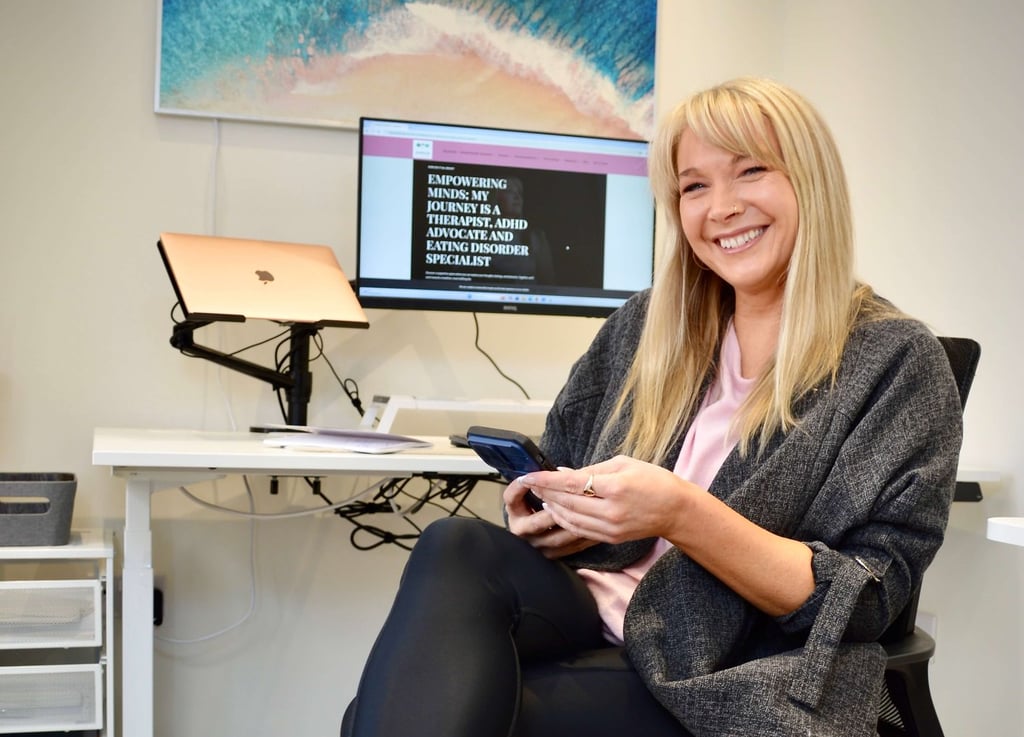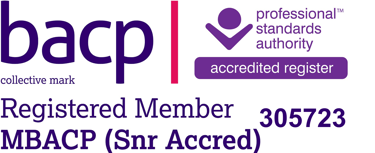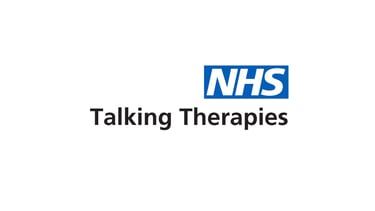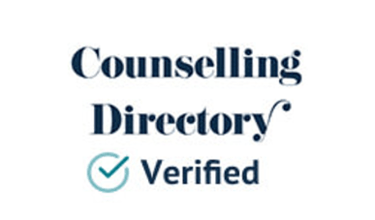*Guest Blog* by Becky Stone
What Most People Get Wrong About Eating Disorders


Guest Blog by Becky Stone:
What Most People Get Wrong About Eating Disorders
“You don’t look like you have an eating disorder.”
It’s a phrase I hear far too often, and it’s one of the most harmful assumptions people make.
Despite how common eating disorders are, they remain one of the most misunderstood areas of mental health. As a therapist who specialises in this field, I’ve seen first hand how myths, stigma, and silence prevent people from getting help. This post gently challenges some misconceptions and opens the door to a more compassionate, informed conversation.
1. You can’t tell who is struggling by looking at them.
When new clients come to therapy with anxiety, low mood, or emotional overwhelm, eating disorders often aren’t even mentioned, yet disordered eating is quietly running in the background.
Disordered eating can look like anything.
You can have anorexia in a larger body.
You can be bingeing and purging in secret, and no one in your family would ever know.
You can be experiencing atypical anorexia, where your weight might appear “normal,” but your thoughts and behaviours are deeply distressed, obsessive, and rigid.
You can have anorexia nervosa, where weight loss becomes extreme, but even then, it’s not the whole picture.
And this is key:
Eating disorders affect all ages, body types, and backgrounds.
That’s why, as therapists, we need to ask:
“What’s your relationship with food and your body like?”
Not just “do you have an eating disorder?”
Because food and mood are deeply connected, and if someone is struggling with disordered eating, it can have a significant impact on their mental health, even if they don’t realise it yet.
2. Eating disorders are not just about food or weight.
One of the biggest myths is that eating disorders are about vanity or the pursuit of thinness. But in truth, they are deeply rooted in emotional pain, trauma, perfectionism, sensory needs, identity struggles, or a desperate need to feel in control.
Eating disorders are often coping strategies. They may start with a diet or a quest to feel better, but they very quickly become a way to self-regulate, distract, or numb out from emotional overwhelm.
The food is never just food.
It’s often a symptom of something much deeper and far more complex.
3. It’s not just a teenage issue.
Another common myth? Eating disorders are something teenage girls go through and “grow out of.”
Not true.
I’ve supported clients in their 30s, 40s, 50s, and beyond who are still living with disordered eating, some who’ve carried it since childhood, others whose struggles were triggered by big life transitions like pregnancy, grief, divorce, menopause, or burnout.
There’s no age limit on body distress.
It’s never too late to heal your relationship with food or yourself.
4. Recovery doesn’t mean loving your body overnight.
Recovery from disordered eating isn’t linear, and it isn’t about waking up one day and suddenly loving every inch of your body.
For many people, body positivity feels entirely out of reach. That’s where body neutrality comes in—a gentler space where you can begin to respect your body, even if you’re not ready to love it yet. Recovery might mean:
• Reconnecting with hunger and fullness cues
• Learning to eat regularly
• Building emotional regulation tools
• And letting go of the rigid rules around food
It’s slow, courageous work.
And it’s not about perfection. It’s about healing.
5. Neurodivergence plays a big role, and often gets missed.
Many of the clients I work with are also neurodivergent, often with undiagnosed ADHD or autism. And that changes how eating disorders show up.
• ADHD can impact impulse control, meal routines, and dopamine-seeking through bingeing
• Autism can affect sensory preferences, texture sensitivity, and strict food rituals.
• Executive dysfunction can make planning and eating feel overwhelming.
If we don’t understand these overlaps, we risk missing the real roots of someone’s distress. Neurodivergent people often go unsupported for far too long, because their needs don’t fit the typical boxes.
6. Shame keeps people silent
So, why don’t people talk about eating disorders?
Because shame is loud.
Because they’re scared of being judged.
Because they don’t “look sick enough.”
Because they’ve become masters of hiding it.
Many of my clients have been struggling for years, but didn’t believe they were allowed to ask for help.
That’s why this conversation matters.
Final thoughts: Let’s drop the judgment
You don’t need to be an expert to support someone with an eating disorder. But curiosity, kindness, and awareness go a long way.
Let’s stop assuming that eating disorders look a certain way.
Let’s start asking better questions.
And let’s remember that food, body image, and mental health are all connected.
If you’re reading this and it resonates…
Whether you’re struggling in silence, supporting someone you care about, or working as a mental health professional, thank you for being open to learning more.
You deserve support. You deserve to feel safe in your body. You deserve to feel free.
About the Author
I’m Becky Stone, a qualified eating disorder therapist based in the UK. I work with both teens and adults, offering a calm, non-judgmental space to explore what recovery really means, on your terms. I specialise in supporting neurodivergent individuals, including those with ADHD and autism, and I believe in flexible, shame-free recovery.
If you’d like to learn more about my approach, you can visit my website:










